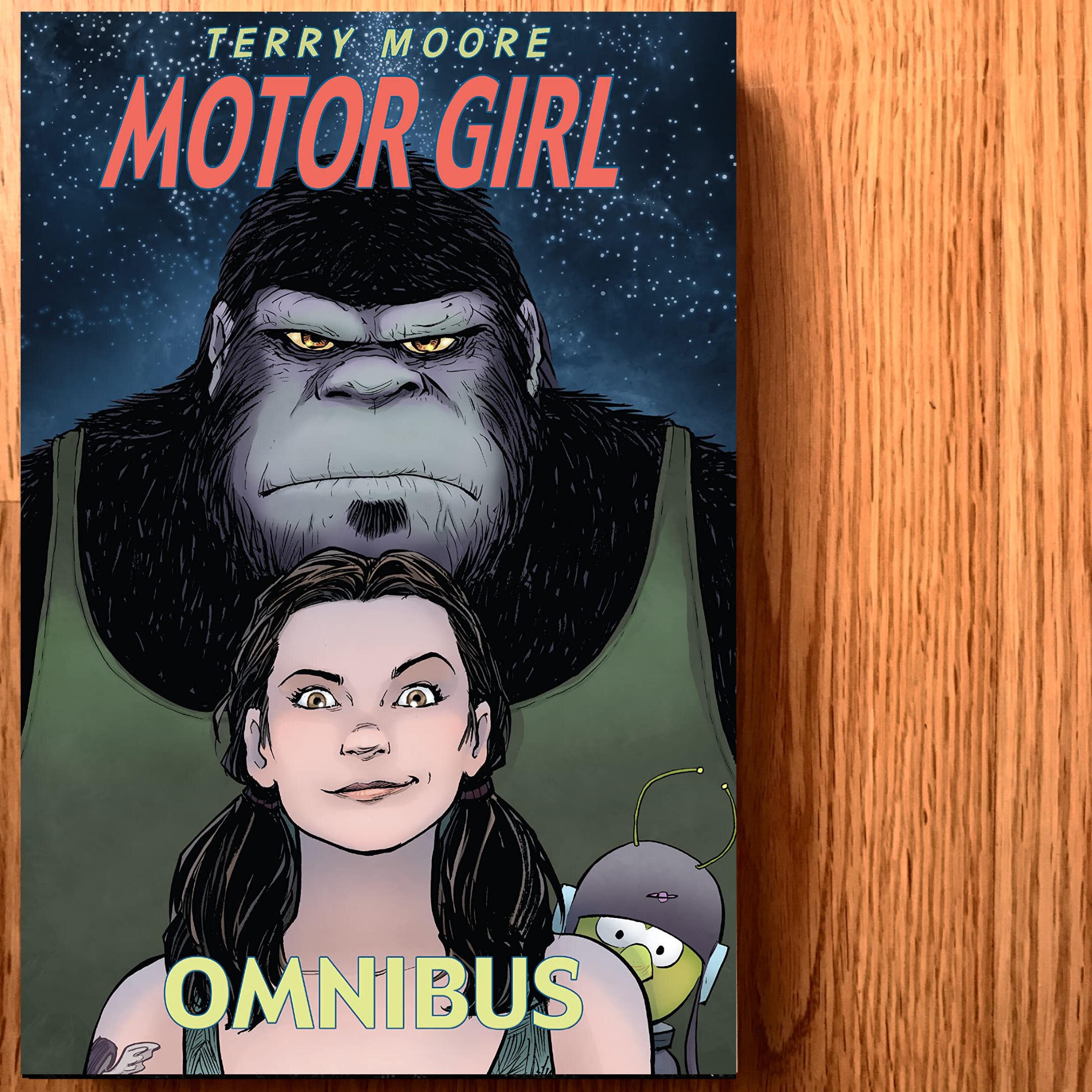By Dahl Botterill
"I don't need any help! Okay? I carry my own load! No one has to help me! I help them! I'm the strongest person in the room! That's how it works!"
Samantha Locklear lives and works in a junkyard in Nevada, pulling parts from old cars with only the company of a 600-pound gorilla named Mike. It's a reclusive life, and it suits her just fine, until late one night, a flying saucer crashes into the junkyard. She quietly helps the aliens get on their way, and the next day assumes it was all a dream until her tiny little world is suddenly filled with new faces trying to get in on the UFO game.
Sam Locklear is also a veteran with three tours behind her, having survived two bombings and ten months of torture as a prisoner of war. She suffers from debilitating headaches, hasn't contacted her family since returning home, and her best friend in the world exists entirely in her head.
Terry Moore's Motor Girl layers comedy and drama over one another in a moving exploration of psychological trauma, focusing on Sam's intentionally small slice of the world and the way that slice is shaped and defined by the physical and emotional injuries she sustained as a Marine in Iraq. Sam is both incredibly strong and tragically broken, and each of these aspects sometimes gets in the way of the other. Her PTSD makes it difficult for her to help all the people she wants to, or even to stare reality full in the face, and her refusal to be anything but “the strongest person in the room” at all times prevents her from dealing effectively with her trauma. Moore's character work is on full display here, with everybody playing dual roles; most are developed both as individuals and as reflections of Samantha's own personality.
Terry Moore is probably most famous for Strangers in Paradise, and in Motor Girl, his cartoonist's sensibilities are on full display as he returns to a style of art that will feel particularly familiar to readers of that other work. It's a little rougher style than some of his more recent titles—he apparently returned to primarily using a brush for this title—and it fits the work perfectly. Moore's art is minimal without being simple, each line full of emotion and gravity, and it does a masterful job of tying the serious and silly aspects of the book together. Motor Girl is a great book that packs a huge amount into its relatively short length. It's an obvious recommendation for anybody that's already a fan of Moore's previous work and a great introduction to Moore's style and writing for anybody a bit overwhelmed at the idea of diving into one of his lengthier titles.

